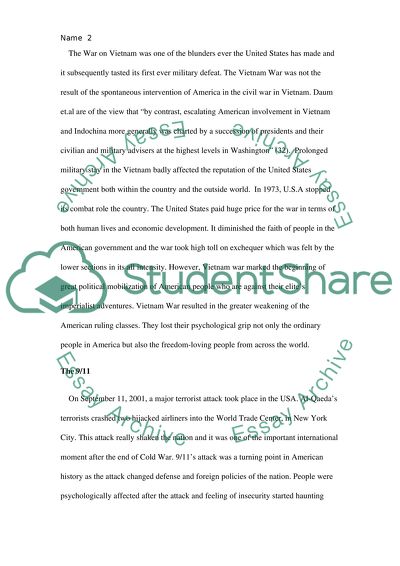Cite this document
(“Cuban Missile Crisis, Vietnam War and the 9/11: Three Moments of Assignment”, n.d.)
Retrieved from https://studentshare.org/history/1415167-cuban-missile-crisis-vietnam-war-and-the-911-three-moments-of-watershed-in-american-history
Retrieved from https://studentshare.org/history/1415167-cuban-missile-crisis-vietnam-war-and-the-911-three-moments-of-watershed-in-american-history
(Cuban Missile Crisis, Vietnam War and the 9/11: Three Moments of Assignment)
https://studentshare.org/history/1415167-cuban-missile-crisis-vietnam-war-and-the-911-three-moments-of-watershed-in-american-history.
https://studentshare.org/history/1415167-cuban-missile-crisis-vietnam-war-and-the-911-three-moments-of-watershed-in-american-history.
“Cuban Missile Crisis, Vietnam War and the 9/11: Three Moments of Assignment”, n.d. https://studentshare.org/history/1415167-cuban-missile-crisis-vietnam-war-and-the-911-three-moments-of-watershed-in-american-history.


